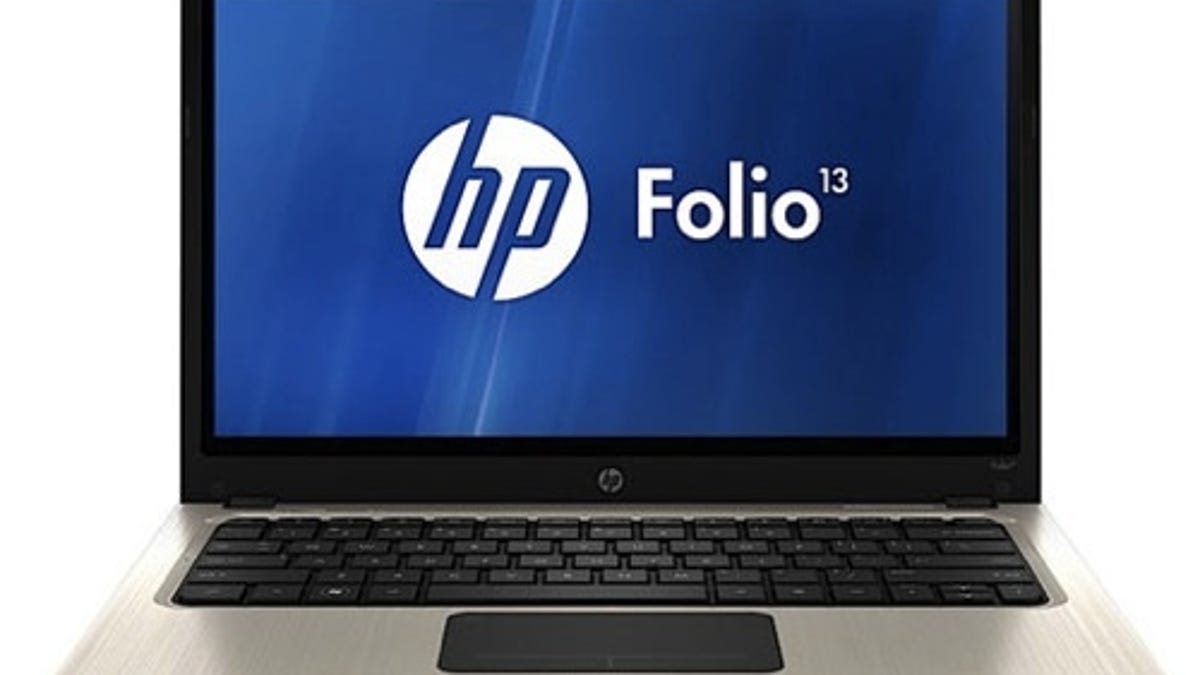Ultrabook holiday pricing on the cheap
In the last couple of months new ultrabooks have debuted at prices lower than expected. That makes them worth a look.

Ultrabooks are available for the first time this holiday season. That calls for a quick survey of pricing since models have debuted at unexpectedly low prices.
As a refresher, ultrabooks are skinny (typically under 0.8 inches thick), lightweight (three pounds or less) laptops that offer mainstream mobile performance.
In short, they attempt to approximate the portability of a tablet while offering more horsepower via Intel processors. And, of course, they run full-blown Windows--not a minor point.
Pricing runs the gamut but the most-recently-released ultrabooks all fall below the $1,000 mark at retailers like Best Buy. That's important because they need to be well under $1,000 in order to have a shot at mass-market success. So, how do they stack up on price and features?
HP Folio 13: HP's Folio 13 is, on balance, getting good reviews. And the specs may have something to do with it. For $900 you get a Core i5 processor, 128GB solid-state drive, backlit keyboard, USB 3.0 port (among other ports), and good battery life.
Toshiba Portege Z835-P330: Toshiba's claim to fame is price. After selling for $699 at Best Buy last week, the 13-inch ultrabook is back to $799. But it's a decent deal for what you get. It sports a magnesium chassis and reviews have generally been pretty favorable (I handled one at a tech conference and was impressed). Specifications include a Core i3 chip, 128GB SSD, backlit keyboard, USB 3.0 port, HDMI connector, and Gigabit Ethernet.
Note that there is no Bluetooth on this Toshiba model.
Acer Aspire S3: Even though it's a bit pricier at $900 ($899.99), reviews have been tepid. One of the issues, as CNET Reviews pointed out, is that it packs a hybrid hard disk drive system (a 20GB SSD combined with a 5,400rpm 320GB HDD) rather than a pure SSD. While there's nothing wrong with that (and we'll likely see more hybrid storage ultrabooks), it doesn't fare well when compared to SSD-only systems. The S3 does use an Intel Core i5 processor, though--that's a plus.
Asus Ultrabook (11.6-inch) At a list price of $999.99 (or about $50 less--at online stores such as Amazon), the Zenbook is the priciest one in this group but well-equipped for an 11.6-incher (the ones listed above are all 13-inch class ultrabooks). Boasting a Core i5 processor, 128GB SSD, a USB 3.0 port, it weighs only 2.4 pounds. It's considered an upscale ultrabook because of an all-metal construction.
MacBook Air While not labeled an ultrabook (Perish the thought!) it's the design that pioneered the category (the MacBook Air was introduced in January of 2008). The 11.6 inch Air can be had for around $940 at retailers such as Mac Connection. On a raw feature for feature basis, it falls short of the Windows variety above. The Air only has a 64GB SSD and 2GB of memory--in both cases half the amount found on similarly-priced or less expensive Windows ultrabooks. That said, it's an Apple product and that means high-quality components and construction.
Next year will see a cavalcade of ultrabook introductions. Some of the most compelling will use Intel's upcoming Ivy Bridge silicon and ship in the late spring or early summer time frame. Until then, this is a pretty good start.
Note: most of the Windows ultrabooks above have 1366x768 resolution screens.

